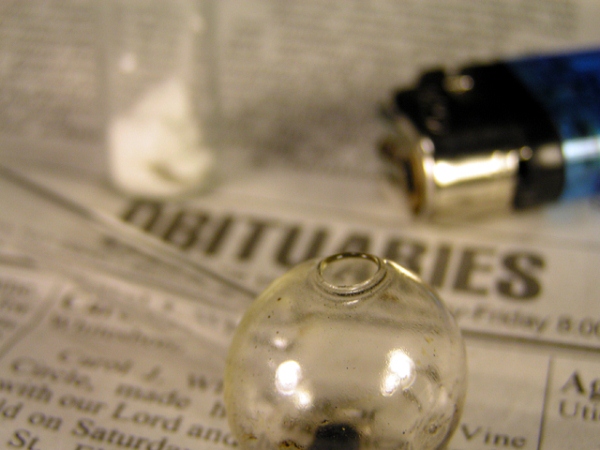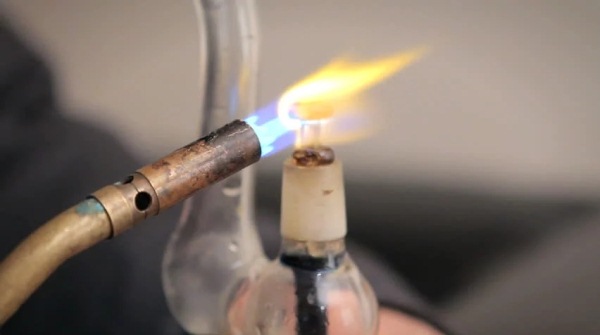How People Hide Their Meth Addiction
Many of the signs of meth addiction are very obvious. Extreme weight loss, skin sores, and “meth mouth” are just some of these. However, many addicts know this, so you need to know how people hide their meth addiction.

Stashing Drugs and Paraphernalia
One of the most common ways that people attempt to hide an addiction is by hiding their drug supplies in unusual places. Some of the most common of these are:
- In clothing or furniture
- In otherwise innocuous containers
- In appliances
- In vehicles
If you suspect someone you care about of trying to hide a meth addiction, you should look in these places, or any others you think of, in order to find proof of your suspicions.
Keeping Secrets
Another thing to look for is secretive behaviors. If someone close to you refuses to let you into their home or room, they may be hiding something. Likewise if they refuse to say where they are going, have been, or who they are with. This may indicate a meth addiction.
Hiding Out
According to the National Institute on Drug Abuse, paranoia and irrational suspicion are common side effects of methamphetamine abuse. This may cause meth addicts to withdraw from people and social situations. If it is unlike someone you know to avoid people, especially those close to them, you are right to suspect a possible meth addiction.
Lies and Excuses
In addition to being secretive, many people trying to hide a meth addiction will lie and offer excuses for failing to meet their responsibilities. These lies and excuses may prove very difficult to believe.
It is never advisable to spy on someone you care about. However, in cases where you suspect a meth addiction, you may want to check into their stories so you can get them help if they need it.
What to do About It
If someone you care about is addicted to methamphetamine and trying to hide it, you may feel powerless or hopeless. However, you can help them. Educate yourself on treatment options and other help available. Calmly talk to them about your concerns. Offer to help them and be persistent. Everyone deserves a chance to beat their meth addiction.
Important Questions to Ask About Meth Addiction
Methamphetamine is widely believed by substance abuse professionals to be one of the most addictive and dangerous illicit drugs. Despite many educational and prevention programs, methamphetamine abuse and addiction remain a very serious problem in society. There are several important questions to ask about meth addiction that you need answers to.
What are the Signs of Meth Addiction?
According to the Center for Substance Abuse Research at the University of Maryland, there are many obvious signs of methamphetamine abuse and addiction. Some of these include:
- Psychosis
- Poor personal hygiene
- Anxiety
- Skin sores from scratching or picking at tactile hallucinations
- Insomnia
- Cracked and rotted teeth
- Severe weight loss and bad complexion from malnutrition
- Paranoia
- Intense cravings
These signs all indicate a meth addiction that requires treatment.
Is There a Cure?
Methamphetamine addiction is considered chronic disease. This means that there is no cure for it. In this way it is similar to asthma or diabetes. Like these other diseases, meth addiction can be managed if it is handled the right way.
What Treatment Options Exist?
While there is no cure for meth addiction, there are several psychological treatment options that can help sufferers get their lives back under control. These include:
- Contingency management therapy
- Matrix model treatment
- Cognitive behavioral therapy
- Motivational interviewing
- Group, family, and individual counseling
All of these methods are widely used in treating methamphetamine addiction.
Do These Treatments Work?
All of the behavioral treatments used to combat meth addiction are effective under the right circumstances. There are a few factors to know that can bring about a successful outcome. These are:
- Full participation in treatment
- Adequate treatment length
- Building a strong support network
- Healthy lifestyle changes
Combining all of these factors will give recovering the best chance at beating their meth addiction.
What Happens if you Don’t Get Treatment?
The highly addictive nature of methamphetamine makes quitting without treatment all but impossible. This may leave you wondering what will happen if you do not quit. The fact is that continued meth abuse will steal your health, home, and family. It will also take your life. If you are suffering from meth addiction, get help now.

